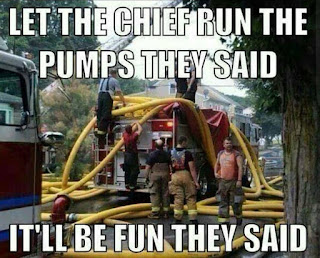CHRIST IN WINTER: Reflections on Faith & Life for the Years of Winter
[This column is dedicated to an old person who tells stories, The Rev. Dr. Fred Skaggs, APC, who is retiring today… for the third time!]
OLD PEOPLE TELLING STORIES [F, 12-31-21]
I mentioned Archie Yarde in the recent column about volunteer fire fighters. Archie was my first pastoral call when I was sent, in retirement, to do a one-year, part-time interim at Tampico, IL, a town of 600 or so people. It turned out to be one of my most pleasant pastoral experiences.
I lived about 30 miles away, so I was not in town every day. But that first week, I went out to get the lay of the land, and meet with the secretary to get orientated to the congregation. She told me that I should call on Archie. “He’s been so depressed since his wife died. He has been a pillar of this church forever, but he hasn’t come to church since her funeral, because it was so bad. She was one of the most-loved women in town, and he feels it was disrespectful to her, the former preacher doing such a bad job of honoring her. Nobody even knew what the preacher was talking about. Archie just feels bad about being in the church where that happened.”
Everyone agreed that my predecessor was a nice man but a terrible preacher, who, while preaching, would “wander into the long grass,” and not be able to find his way back.
So I went immediately to Archie’s house. We didn’t talk about his wife’s funeral, or his disconcert with my predecessor. We just talked, a couple of old guys getting acquainted. Archie was as advertised, sort of forlorn. But as we talked that afternoon, he began to brighten. We just told each other stories.
He told me about his wife and twin daughters, middle-aged women then, but as always with fathers, the stories of when they were little took first place. I had two daughters, too, also married women, approaching middle age, with my own stories of cute little girls. He was probably twenty years my senior, but we were contemporaries in stories.
He told me about Tampico, what I needed to know about the town, but no gossip about people, just what the town was like. One of my campus ministry students at IL State U, and continuing friend, was from Tampico, the son of Archie’s wife’s best friend, and we shared stories of Ron.
Finally, he said, “I’m okay.”
He became a regular at church again, and one of my best supporters and friends. All of us, always, need someone who will listen to our stories. That’s all Archie needed to get back to “okay.”
Sometimes, though, as we get older, there are fewer folks to listen to our stories. I remember a M*A*S*H episode on TV when a reporter was there, interviewing the doctors and nurses. Commanding officer, Col. Potter, the oldest of the bunch by far, said that he loved the young doctors he worked with, their competence and enthusiasm, but he had started as an army doctor in WWI. He rode a horse! There was no one in his MASH unit who understood his stories.
If you find yourself with no one to listen, tell your stories, anyway. Write them down, or just tell them to yourself. Or tell them to God… God’s old enough to understand everybody’s story!
John Robert McFarland




































